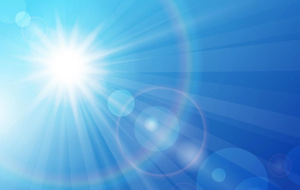London, Jul 22: A higher lifetime exposure to sunlight may increase the risk of developing eye freckles or dark spots on the colored part of the eye called iris, a study has warned.
While not malignant, eye freckles could indicate the presence or risk of sunlight-triggered eye diseases like cataract or macular degeneration, researchers said.
Over 600 swimmers at public pools in Styria, Austria had their eyes examined for freckles and filled out a questionnaire that asked about their lifetime sun exposure and sun-protection habits.
The researchers from Medical University of Graz in Austria found that the development of eye freckles correlated with increasing age, lifetime number of sunburns and a history of severe sunburns resulting in blisters.
The results, published in the journal Investigative Ophthalmology & Visual Science, also showed that people with dark coloured eyes were less likely to have eye freckles, as well as those who maintained better sun protection habits like using sunscreen or covering up.
One unexpected finding was the uneven positioning of freckles on the eye. Freckles were most commonly found in the lower outer quadrant (away from the nose) of each eye.
The researchers hypothesised this may be because the eyebrow and nose shield the upper and inner quadrants of the eye from the Sun, lowering exposure and the risk of developing freckles.
"While we do not know the exact role of sunlight in several eye diseases, we now have a biomarker (iris freckles) indicating high amounts of chronic sunlight exposure," said Christoph Schwab, ophthalmologist at the Medical University of Graz.





Comments
Add new comment